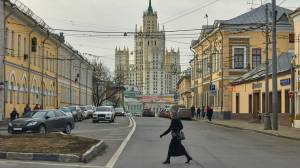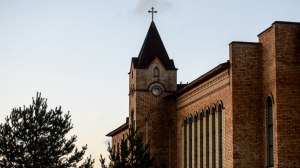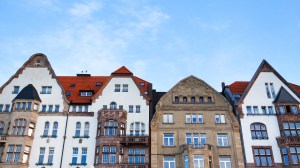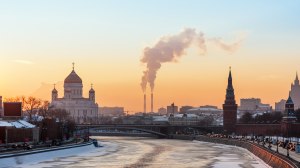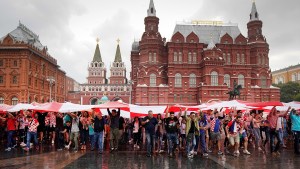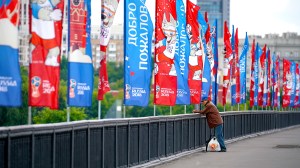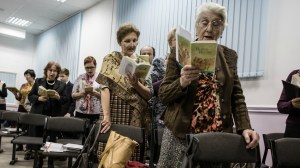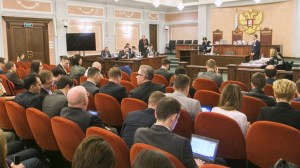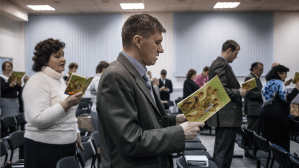In this series
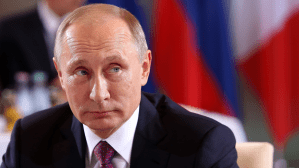
Even as persecution climbs for Protestants in Russia, most of its evangelicals continue to support President Vladimir Putin, who won his fourth six-year term in last week’s election.
Given Putin’s stronghold in the former Soviet state, they don’t really have another choice.
The incumbent Russian president drew in 75 percent of the vote Sunday, up from 64 percent in 2012. With a popular leading critic, Alexei Navalny, forced out of the race, Putin soundly beat out Pavel Grudinin, a millionaire entrepreneur from the Communist Party; Vladimir Zhirinovsky, an ultranationalist with a military background; and Ksenia Sobchak, a former TV host.
For Protestant voters, who make up only about 1 percent of the heavily Orthodox nation, “their support for Putin would be only a bit below the national average,” according to William Yoder, spokesman for the Russia Evangelical Alliance. “They would not vote for a communist, or a nationalist like Zhirinovsky, and not for a movie-starlet like Sobchak.”
Like their Orthodox neighbors, Russian evangelicals prioritize family values such as traditional marriage, said Yoder. But leaders do not often speak out to address politics—especially not from the pulpit.
Pastor Alexei Smirnov, chairman of the Russian Union of Evangelical Christians-Baptists, did post a statement this week to congratulate Putin on his victory.
“In accordance with the Word of God, the Bible, the churches of the Russian Union of Evangelical Christians-Baptists will support you in prayers. As before, our brothers and sisters will make every effort to build not only the Kingdom of Heaven, but also the earthly Fatherland, Russia,” an English translation read.
“I wish you strong health, blessing, and special wisdom from the Lord in high and responsible service as President of Russia.”
Still, Protestants and other non-Orthodox faiths continue to face a crackdown on their practice as a result of anti-evangelism laws proposed by lawmaker Irina Yarovaya and passed by Putin in 2016. The restrictions limit religious activities and proselytization that occurs anywhere outside church buildings registered with the government.
Evangelicals have been directly impacted by these measures, as well as other efforts that appear to target those outside of the Russian Orthodox church.
Just this week, media reported that the Church of Evangelical Christians of the Gospel House in Chelyabinsk—a Pentecostal congregation located in central Russia, north of Kazakhstan—was fined for “illegal missionary work” since the full name of the church was not posted on the rented room where they met. When Gospel House opted to pray in a different location, the court also forbid the move “because of violations of the norms of anti-terrorist security.”
“Christian Protestants—Baptists, Pentecostals, and Seventh-day Adventists—also regularly face harassment in the press and pressure from the Russian bureaucratic machine,” the US Commission for International Religious Freedom (USCIRF) wrote in a report released in January, which noted Pentecostals as a particular target under the 2016 legislation.
“They have difficulties in obtaining land plots for their liturgical buildings; they are visited with inspections, and so on.”
The land and space issue has become particularly costly, as government officials are increasingly fining churches that meet in private homes or buildings for violating property use laws, Forum 18 reported. The number of such fines levied against religious groups more than tripled in 2017, up to 23 incidents.
Around 90 percent of Protestant places of worship occur on property designated for residential use, estimated Adventist lawyer Vasily Nichik, since laws restrict the ability of churches to lease or buy land for themselves.
World Evangelical Alliance global ambassador Brian C. Stiller recently wrote for Ed Stetzer’s CT blog, The Exchange, that despite the opposition, the Russian Pentecostal Union has founded 1,000 new churches over the past six years. He encouraged US congregations to keep Russian brothers and sisters in their prayers:
In our flawed and curious maze of East and West interfacing, I inevitably end up asking my Russian brothers and sisters, “What can we do?” At the top of their requests is, “Please don’t forget us.” As fewer Christians now travel to Russia, Russian Christians feel somewhat abandoned. Try this. Link your congregation with one in Russia, build friendships, encourage them, let them know they are remembered.
Walls have been built and then torn down with no promise that they will not be built again: freedom given can quickly be taken away.
USCIRF, which last year named Russia a Tier 1 “country of particular concern” in its religious freedom report, urged the US State Department to persuade Russia to drop the anti-evangelism laws, registration requirements, and other discriminatory means of government review for religious groups so that the country could better foster religious tolerance.
Religious pluralism is another political priority for Russia’s Protestants; but it’s becoming harder to come by.
“I think evangelicals have become more accustomed to Putin over time,” said Yoder. “They are very disappointed regarding the Yarovaya Laws, but they see no makeable alternative to Putin.”
Prior to the anti-evangelism laws, Christianity Today noted how most Russian evangelicals, including the official Congress of the Union of Evangelical Christians-Baptists, literally thank God for Putin and side with him politically, particularly on the Ukraine crisis.
“Putin is genuinely popular—and admired—by Russians across the spectrum: among believers as well as the religiously indifferent, among Protestants as well as Orthodox, and among academics as well as taxi drivers,” wrote Mark R. Elliott, editor of the East-West Church and Ministry Report.
CT reported last year about what evangelicals living under Putin think of President Trump, who has recently had to defend his statement congratulating the Russian leader on his reelection.
The King’s College chancellor Gregory Alan Thornbury wrote that American evangelicals historically have pushed back against Russia’s troubling religious freedom record and encouraged more to speak up about Putin’s election.
Evangelicals’ silence “aligns with a troublesome trend across this faith community. In recent years, leaders of this influential religious group have nurtured a growing admiration for all things Russia and its strongman, Putin,” he wrote Wednesday in a column for Religion News Service.
“Despite Putin’s horrific recent track record [on] religious liberty and campaign to bar American couples [who want to] adopt at-risk Russian orphans—issues that believers claim to be of urgent concern here at home—evangelical leaders such as Franklin Graham have praised Putin as a ‘defender of traditional Christianity.’”


